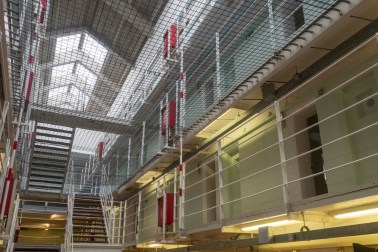Martin Vander Weyer’s Any Other Business
I wrote here in February that I did not believe the Conservatives’ pretence of having ‘absolutely no plans to increase VAT’, and that, having examined this fiercely complex issue at some length with an ice pack on my head, I had come down in favour of a VAT rise — as indeed had the experts at the Institute of Directors, who wrote: ‘The VAT rate should be increased to 20 per cent, in order to allow for more substantial and rapid tax reductions elsewhere than would otherwise be possible.’ That has now come to pass, and despite the howls of protest in the House of Commons when the Chancellor announced it, I’m sticking to my guns. The increase will in many cases be disguised either by retailers’ discounts or by rising import prices as a result of the weaker pound; it is in line with the European VAT average, and it’s a simple way of collecting an extra £11 billion a year in tax revenue now, rising to £13 billion (on the Chancellor’s figures) by the end of the parliament. So let’s not get hot under the collar about the VAT rise: there were many more items to argue about in a Budget that was nothing if not courageously frank.
And broadly speaking, the news for the business community — apart from the banks — was positive. Indeed, I’m already feeling the urge to set up a new enterprise, to take advantage of plans to reduce both the smaller companies’ tax rate and the National Insurance cost of hiring new and lower-paid workers. What with talk of a regional growth fund and cheaper petrol (though I’ll believe that one when I see it) for remote rural areas, plus special encouragement for tourism ventures, I’m thinking of converting my North Yorkshire home into a theme park. Better get back to studying the VAT manual.
Chinese gesture
The other big news was China’s decision to loosen its currency peg and allow the yuan to appreciate against the US dollar for the first time since 2008. A shift to a significantly stronger yuan over a period of time would counteract China’s rising domestic inflation rate and correct a glaring interference in the patterns of global trade and prosperity that an unfettered foreign-exchange market might otherwise dictate. In practice, however, this week’s move was little more than a political gesture, ahead of the G20 meeting in Toronto at the weekend, to mollify Congressional xenophobes — the same ones who have been so hostile to what they have been encouraged by their President to call ‘British Petroleum’ — and opponents of any kind of free market that does not play in America’s favour. New York’s Democrat Senator Charles Schumer is one who will be hard to satisfy: ‘It is only strong [protectionist] legislation that will get the Chinese to change and will stop jobs and wealth from flowing out of America,’ he declared in response to the peg- loosening.
Meanwhile, a rather small uptick in the exchange rate provoked a whoop from global stock markets on Monday — followed, in the usual way, by a whimper on Tuesday reflecting the other side to this equation. It’s true that an artificially suppressed yuan has kept Chinese exports unbeatably cheap through the recession, and that as those goods now become a bit more expensive, the more cost-efficient and technologically up-to-speed US and European manufacturers should do a little better, both in their home markets and in exporting to China itself. But as Chinese consumers begin to enjoy the new purchasing power that comes with a stronger currency, their savings rate will fall — and that means their capacity to absorb huge volumes of US Treasuries (and to a lesser extent, the paper of other western governments, including our own) will reduce, which means our interest rates may have to rise, and the global problem of excessive sovereign debt will become more difficult to manage. Whichever way this particular game of mah jong plays out, I have a feeling the wily Chinese will come out winners.
A visit to clubland
Investment clubs had their heyday in the dotcom boom of the late 1990s, but fell out of fashion when novice members discovered that shares could go down as well as up — and could stay down, below their millenn-ium-eve peak, for more than a decade so far. But I have come across a convivial example in York, the Equity Club, which has recently celebrated its 50th birthday, making it (as far as its members can ascertain via ProShare, the organisation which provides guidance on how to run these groups of friends and colleagues without falling out) the longest-established in the country. Started by young managers from the Rowntree chocolate factory in February 1960, the club collects monthly subscriptions of up to £40 from 25 members, providing (with dividend income) about £1,000 a month to invest on the basis of collective decisions taken over pints of beer on the first Monday of every month. The portfolio currently holds 36 companies and the club’s recent experience provides a nice little stock-pickers’ parable to complete our Investment Special this week.
David Lamb, one of three surviving founder members, tells me that performance has more or less tracked FTSE indices over the years, despite the handicaps of trading only once a month and in small lots. ‘The share held for the longest period was Shell; the “oldest” share in the current portfolio is Prudential; the most profitable is Reckitt Benckiser, the most disappointing, Aviva; the most speculative, perhaps, is Wichford [owner of a portfolio of property occupied by UK and European government bodies].’ In the banking sector, ‘we disposed of Northern Rock at a loss in December 2007, but failed to get rid of RBS and HBoS soon enough, so they went at an even greater loss; we retained HSBC and bought into Standard Chartered.’
As for BP, they bought shares back in 2002, at £5.56, and when they met last month they judged the price fall provoked by the Mexican Gulf spillage to be a temporary setback and bought more, averaging down to £5.20. At an Obama-bombed price below £3.50, that’s not looking good — but a London hedge-fund manager told me last week that he and his peers are ‘seeing value’ in BP at this level, while the bulk of the selling is coming from American investors influenced by White House propaganda. So my chums in York may come out unscathed in the end. I wish them luck and fun for the next half-century.






Comments